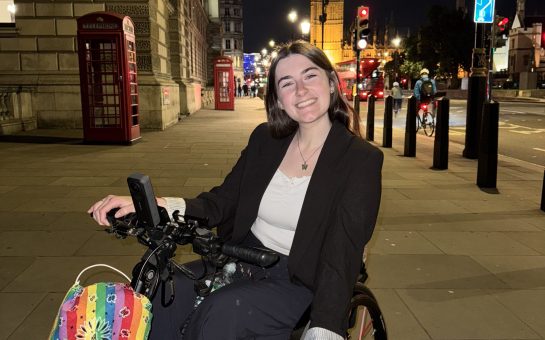Speakers at the ExCeL centre’s 2023 Autism Show welcomed an upcoming government employment review but cautioned that a shift in employers’ attitude is required to get more autistic people in work.
In April, the Department of Work and Pensions announced the Buckland Review, which will investigate the strikingly low rates of employment among autistic people.
Just 22% of autistic people are employed according to 2021 ONS data, the lowest rate among any disabled group.
Although the study doesn’t factor in the prevalence of under-diagnosis, especially for women and older adults, it highlights the existence of barriers that prevent autistic people from securing and retaining paid work.
The Buckland Review aims to boost the current figure by ensuring employers are able to provide the right support, offering autistic adults adequate training and combating stigma.
According to Autism Show attendees, a lack of understanding and support from employers is proving to be the most pernicious problem with staying in the workforce.
During autistic writer and blogger Brian Bird’s talk, an audience member asked for advice about handling her manager, who had grown frustrated with her requests for basic accommodations.
Having spoken positively about his experience of late diagnosis while in his fifties, Bird was much more ambivalent on the topic of disclosure.
He said: “Be careful, it’s not a good thing or a bad thing. It’s something we need to be careful of.
“You can ask for reasonable adjustments but not everybody will be responsive.”
Sadly, it appears these warnings are justified, with a 2020 survey of managers revealing that half wouldn’t employ a neurodivergent candidate, despite the majority of respondents admitting they knew little about autism or ADHD.
Lydia Stott, a diversity and inclusion coordinator and young ambassador for the National Autistic Society, had a similarly bad experience before finding a supportive organisation.
While working in an accounting role, she encountered pushback when asking for small accommodations, in addition to miscommunication that needlessly escalated into conflict.
Speaking at the Autism Show, she said: “My manager asked me if Friday morning was convenient for a meeting.
“Then, I said: ‘No, it’s not actually’, not realising that she wasn’t genuinely asking.
“She wasn’t impressed. It was the first time I heard the expression: ‘I say: jump, you say: how high’.”
Despite performing well in the role, Stott resigned due to stress triggered by how uncomfortable and out of place she felt.
However, she is now thrilled to be in a role that includes delivering diversity and inclusion training to large organisations, ensuring that others don’t face the same micro-aggressions.
Penny Perry, admissions manager at Derwen College, a vocational college supporting those with special educational needs or disabilities, confirmed that many employers lack awareness around how they can support autistic employees.
She said: “We have challenges around engaging employers, we can find it difficult because they don’t know what they’re dealing with.
“They’re probably a little frightened of how they are going to need to be supporting those young people.
“I would say that if you can get buy-in at the top of a company, at the highest level, that positive message of inclusion can be brought down from the top.
“They need a basic understanding of what the challenges are for these young people, both around working environment and relationships with colleagues.
“It will get better but it will take time.”
Evidently, this can’t come soon enough for the many employees navigating a workplace that becomes hostile once they ‘come out’ as autistic.
Unsupportive workplaces and even subsequent firings make the decision to disclose a diagnosis fraught.
It’s hoped the Buckland Review will usher in meaningful change to workplace policy for neurodivergent employees.
The review, which began last month, will incorporate the viewpoints of autistic people, professionals, charities and specialist organisations.
Recommendations are scheduled to be given to Mel Stride, Secretary of State for the Department of Work and Pensions, in September.





Join the discussion